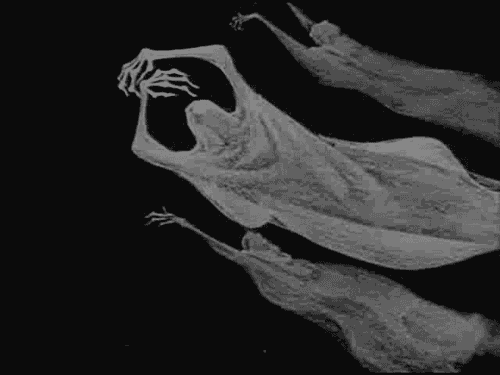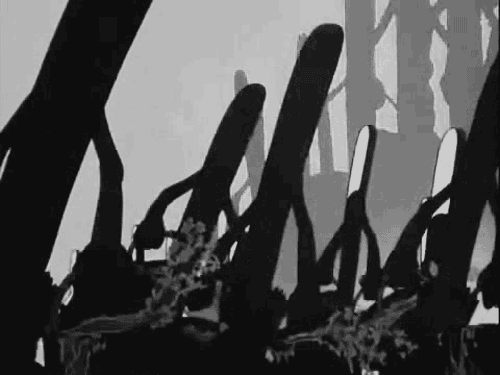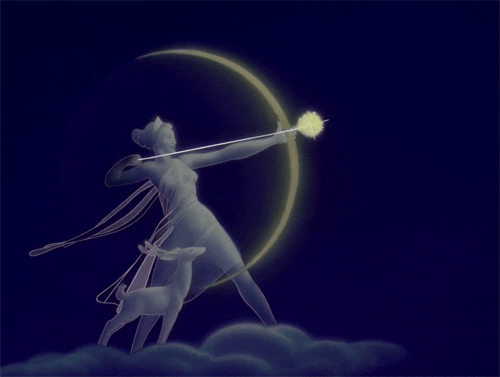Back when I started this blog, social media was a sort of nascent entity—we had no idea if it would stick around or fall into the waste bin of internet things that didn’t last. It was easy to do what we’re now calling creating content and feel secure that the right people would eventually find their way here. Now, anyone trying to cultivate and maintain an online presence has all these disparate platforms to appease: pithy epigrams for Twitter, photos in proportion for Insta, daily short videos for TikTok, longer ones for YouTube, who knows what? for Facebook. Is Snapchat even a thing any more? Like its iconic mascot, I, too, am a ghost.

Yesterday, I came across a post on Instagram (my favorite of all of the social media choices thus far) from a wonderful artist who makes intricate stays. She was listening to a podcast talking about all kinds of stuff, notably Caliban and the Witch: a treatise by Silvia Federici dealing with capitalism’s effect on women through the ages. The podcasters alluded to the fact that the platforms are flogging us for essentially free labor, compelling us to create content that in the end, benefits the platforms more than anyone else. This idea has been turning in my mind for the last 24 hours, a rock in the shoe of my brain; delighting and vexing me in turns.
The last few years have felt like a slow sinking for my online life: the rose colored glasses came off in 2012, when I got a series of rude and misguided comments on YouTube from a male cellist who seems to have problems with just about everything except for the few things he has determined are good. It’s important to identify the abuse as coming from a man because I’ve never had random women suggest that I am incompetent, stupid, ugly, whorish etc etc whereas I have lost count of the number of times MotI (Men on the Internet) have felt compelled to do so. Later that year, I also received death threats and bile from a young (male) cellist in Mexico in response to a video about Haydn. Totally appropriate reaction </sarc>. Back in the twenty teens, I also used to talk about sports online. I was assailed weekly by MotIs whenever I weighed in on USC football or Caps hockey. It got worse when I started being published by external outlets. In 2015, I received more death threats and extreme vitriol after calling out ESPN for perpetuating sexist propaganda that normalized rape. CNN picked my tweet up (without my permission) and for weeks, I had to mute the threads that would rise from the muck and divide like so many Sorcerer’s Apprentice brooms. Men told me I deserved to get raped, that I should die of venerial disease, that this is why women shouldn’t have free speech, that I was ruining football with wokeness.

In more recent years, the downside of being a person online has manifested in a motley mix of spam, people trying to use me, rudeness, and unsolicited pictures of male anatomy. All of this is to say that I have felt less and less incentive to put myself out here, when the risks feel disproportionate to the ever diminishing returns. Creating Tamarack Arts has forced me to re-enter some of the spaces I’ve been avoiding, but the abuse still comes, especially on Facebook. I am told I “have to be” on TikTok; that it’s where everyone is. I am among the eldest of the so-called digital natives, but creating a high quality 3 minute video invariably becomes a multi-hour process. I have since learned that even the pros like Elyse Meyers spend something like an hour for every minute of content they churn out.
So then the question becomes: is Tamarack Arts better served for me spending 3 hours creating a video that 80 people will see, or by my pounding the pavement for 2 hours, meeting people in person who might help the org grow, and then taking a nap for that last hour? In truth, both things need to happen for TA to succeed. But when I’m weighing out what nourishes my soul, the side of the scale labeled “creating content for social media” lifts ever higher against the substance and joy on the side that weighs out the people and causes I care about.
What is all this about?
I suppose I’ve been drawn to this blog of late, but have felt a bit rudderless in terms of what to post on it. In its archives, there is plenty of solid information, some ideas I have modified as my experience grew, a few I have abandoned altogether—but the idea of spending more time doing free labor does not appeal any more. Yet I still feel there are things to say, more to contribute.
I came up with the idea of my first book (not in print currently) after realizing I was writing the same two dozen exercises and technical pointers in nearly every student’s notes. Now that I am teaching almost completely online, I sometimes write lesson notes and send them to students after the session. Not every student or every session, but there is a sense of deja vu: the feeling that these notes might be useful for lots of people.
Perhaps these notes will generate another book (which would also trigger a second edition of the Modern Cellist’s Manual) , but for now, I think they’ll just hang out here, starting in subsequent posts.
Authenticity remains one of the main themes in my teaching, my writing, and my life. There is such great temptation to spend energy doing things that pull us away from our center; from our inherent goodness. We receive daily messages from prevailing culture that only after we have appeased the gods of social media clout and online visibility, of capitalism and coolness, of constant performative competence—can we then go about our lives as we see fit. Ascribing to these beliefs is a full time job in itself. Turning away, even for a moment of reprieve, means you are left behind.
I’m learning that FOMO is worse than actually missing out. I will, of course, still try to figure out the best way forward for myself and Tamarack Arts, and that will involve all or most of the social media platforms. But I will not do it in fealty to them, making sacrifices on the altar of content creation. Posting here, where it all began, where I started to see that there was a space for me and my ideas, is a return to source. I begin again under the same assumption I started with: perhaps nobody at all will notice, and that is fine.


